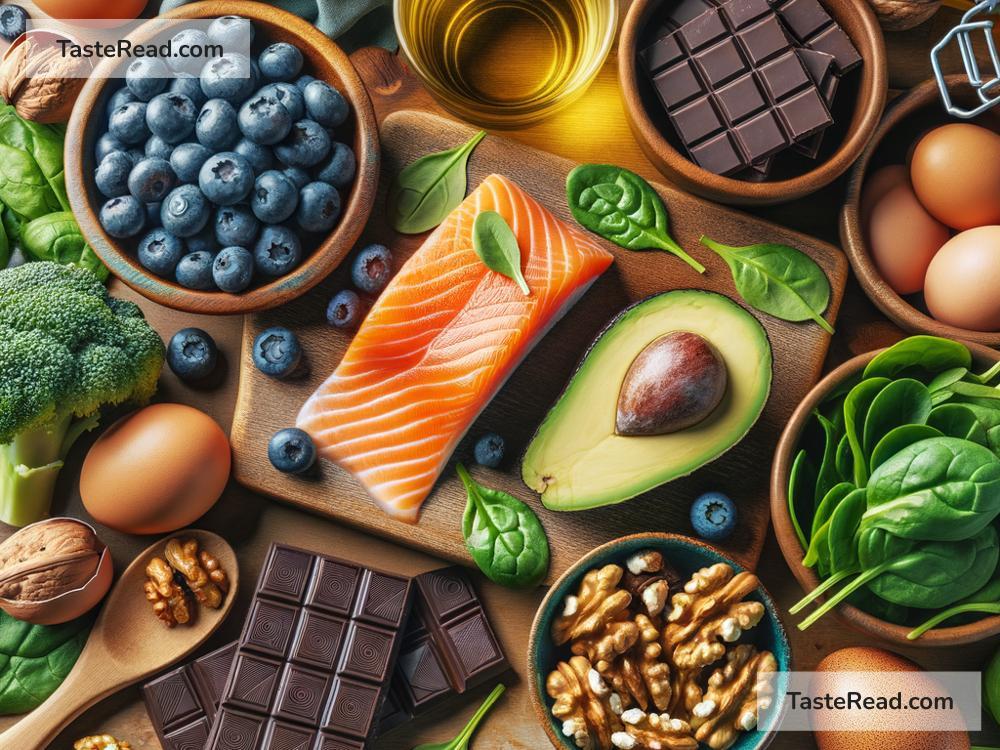Foods for Improving Verbal Fluency: A Simple Guide to Brain-Boosting Nutrition
Do you ever wish your words flowed more easily, or that you could express yourself with clarity and confidence? Verbal fluency—the ability to quickly find and use the right words—depends on your brain’s performance. Just like your muscles need the right fuel to work well, your brain needs proper nutrition to stay sharp. Luckily, some foods can help boost your mental clarity and verbal skills. In this article, we’ll explore simple and healthy foods that support brain function and improve verbal fluency.
Why Food Matters for Your Brain
The brain is a powerful organ that controls everything you do—from solving problems to talking in conversations. It’s fueled by the food you eat, and certain nutrients can enhance its performance. For verbal fluency in particular, you want foods that improve memory, focus, and speed in processing thoughts. These foods are often rich in vitamins, healthy fats, antioxidants, and proteins, which make your brain work at its best.
Foods for Better Verbal Communication
Here are some brain-boosting foods you can include in your diet to strengthen your verbal fluency and overall brain health:
1. Fatty Fish
Fatty fish like salmon, trout, and sardines are rich in omega-3 fatty acids. These healthy fats are essential for building brain cells and improving communication between neurons. Omega-3s have been linked to better memory, attention, and even faster thought processing—all of which contribute to verbal fluency.
If you’re not a fan of fish, you can try plant-based sources of omega-3s, such as flaxseeds, chia seeds, or walnuts.
2. Blueberries
Blueberries are often described as a “superfood” for the brain. These tiny, delicious berries contain antioxidants called flavonoids, which protect your brain from damage and boost mental performance. Research shows that blueberries can improve memory and concentration, so you can recall words and ideas more quickly during conversations.
Keep a bowl of blueberries handy as a snack, or add them to oatmeal, smoothies, or yogurt for an easy way to boost brain health.
3. Eggs
Eggs are a great source of choline, a nutrient that supports brain development and communication between brain cells. Choline is important for producing acetylcholine, a neurotransmitter that plays a key role in learning and memory. Eating eggs regularly may help your brain stay sharp and improve your ability to think and speak clearly.
Breakfast ideas: Scrambled eggs, boiled eggs, or omelets packed with veggies.
4. Dark Leafy Greens
Veggies like spinach, kale, and broccoli are packed with vitamins such as folate, vitamin K, and beta carotene. These nutrients help your brain stay strong and age gracefully. Folate, in particular, is essential for improving mental clarity and speed.
Include leafy greens in your meals by making salads, adding them to smoothies, or serving them as a side dish with your favorite protein.
5. Avocados
Avocados are full of healthy fats, especially monounsaturated fats, which help support blood flow to the brain. Better blood flow means your brain gets the oxygen and nutrients it needs to think and respond quickly. This fruit is also rich in vitamin E, an antioxidant that protects brain cells from damage.
Enjoy avocados on toast, in salads, or as guacamole.
6. Nuts and Seeds
Nuts and seeds, including almonds, walnuts, sunflower seeds, and pumpkin seeds, are full of brain-friendly nutrients. They contain vitamin E, healthy fats, and antioxidants that support memory, focus, and mental agility. Walnuts, for example, are known for their omega-3 content, which boosts cognitive performance.
Snack on a handful of nuts or sprinkle seeds on your smoothie bowls and salads.
7. Whole Grains
Whole grains like brown rice, oatmeal, quinoa, and whole wheat bread provide a steady source of glucose for your brain. Since your brain relies on glucose for energy, whole grains help you stay alert, process information faster, and express ideas more clearly.
Start your day with a bowl of oatmeal or make quinoa as a side dish for lunch or dinner.
8. Dark Chocolate
Good news: dark chocolate is great for your brain—just don’t overdo it! It contains flavonoids and caffeine, which can improve focus, memory, and mood. Caffeine gives you a short-term mental boost, while flavonoids help enhance long-term brain health.
For maximum benefits, choose dark chocolate with at least 70% cocoa.
Stay Hydrated
In addition to eating brain-boosting foods, don’t forget to drink enough water. Dehydration can slow your thinking and make it harder to find the right words. Staying hydrated keeps your brain functioning smoothly, so you can think, speak, and communicate with ease.
A Balanced Diet is Key
While specific foods can strengthen verbal fluency, eating a balanced diet overall is just as important. Combine these brain-boosting foods with other healthy choices, such as fruits, vegetables, lean proteins, and plenty of water. Avoid too much sugar or processed foods, as they can lead to energy crashes and make it harder for your brain to perform well.
Final Thoughts
It’s amazing how your diet can influence your ability to think and speak. By including foods like fatty fish, blueberries, eggs, and nuts in your meals, you’ll give your brain the nutrients it needs to improve verbal fluency. Remember, consistent healthy eating is key—and don’t forget to pair your brain-friendly diet with good sleep and regular exercise for the best results.
When you nourish your body, you’re also nourishing your mind—and that makes all the difference in the way you communicate and connect with others. Start making small changes today, and watch how your verbal skills improve!
Do you have a favorite brain food? Let us know in the comments below!


